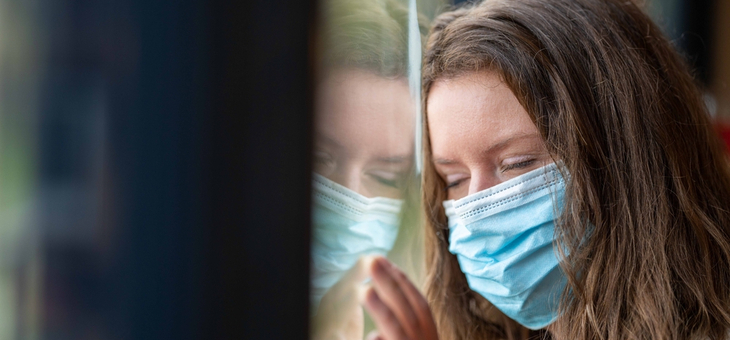The spike in Omicron cases in NSW, which led to a record 3763 cases reported on Wednesday and Doherty Institute modelling showing that cases across the country could reach 200,000 per day by late January, forced an emergency national cabinet on Wednesday.
Even before the outcome of that meeting, however, some states had swung into action to try to limit the spread of the new variant.
The ACT announced that it would tighten its virus restrictions before the national cabinet meeting.
From Wednesday, masks are required across indoor retail and hospitality venues as well as in aged care, workplaces and on public transport in the national capital.
Queensland and Tasmania made similar announcements and on Wednesday morning, Queensland Premier Anastasia Palaszczuk announced that from 5am on Thursday masks would be mandatory in cinemas and theatres for patrons and staff, as well as for hospitality staff.
After the national cabinet meeting, Prime Minister Scott Morrison announced that despite the new challenge being presented by Omicron and the rising case numbers across the country, hospitals and health systems remained in a strong position.
He stopped short of announcing a mask mandate, saying that they were “strongly recommended” in indoor public settings and made no announcement about bringing forward the timeline for booster shots.
“Mask wearing in indoor spaces in public areas is, of course, highly recommended, whether it’s mandated or not,” Mr Morrison said.
“That’s what we should be doing in the same way as we go into the summer season people will be slapping on their sunscreen. There’s no rule or requirement to do that, but it is strongly recommended health advice. It’s in the same category.”
The PM also said that some of the state vaccination hubs that had been wound back would be ramped back up again to cope with demand for booster shots.
“More than 50 per cent of those eligible for boosters have now had them and they have been predominantly among the older population, which are, of course, the most vulnerable,” he said.
Read: When to use a rapid antigen test instead of a PCR swab
According to the Sydney Morning Herald, the Doherty Institute modelling provided to national cabinet showed that surging Omicron infections would overwhelm the health system unless some restrictions returned.
The modelling suggested that boosters alone would not be enough to stop the spread of Omicron and that without the reintroduction of density limits, Australia would have been on track to hit about 200,000 cases a day by late January or early February.
Australia’s chief medical officer, Professor Paul Kelly, slammed some of the reporting of the Doherty Institute modelling.
Read: COVID booster ‘dramatically’ lifts defences, but GPs plead for help
“Recent modelling, both in Australia and internationally, presents a range of potential scenarios as a result of the Omicron variant,” Prof. Kelly said. “While modelling is an important tool to help guide decision-making, it is just one of a range of tools and cannot be viewed in isolation.
“Modelling helps to prepare for all scenarios and to mitigate the risk associated with the pandemic.
“A preliminary scenario, of many being considered to help inform decision-making, presents one of the worst case of all potential scenarios including assumptions that the Omicron variant is as severe as the Delta variant, an absence of hospital surge capacity, a highly limited booster program, no change to baseline public health and social measures and an absence of spontaneous behaviour change in the face of rising case numbers.
“None of these five assumptions represent the likely state of events, let alone all of them together, therefore presenting that scenario as the likely scenario that will occur is highly misleading.”
Read: Is being double-dose vaccinated enough to stop Omicron
Prof. Kelly explained that Australia’s response to the pandemic so far had meant that numbers modelled previously, especially early in the pandemic, had not been realised.
He also provided evidence that there was hope that Omicron would prove to be less deadly.
“After almost four weeks of Omicron in Australia, there are currently no confirmed Omicron cases in ICU and no deaths confirmed to date,” Prof. Kelly said.
“Omicron is here in Australia, it will be an unwanted guest with us for Christmas, but we can and must do what we can to reduce its impact on each of us and our loved ones.”
While Omicron cases are still overwhelmingly a NSW concern, Victoria’s COVID commander Jeroen Weimar announced on Wednesday that the state had just over 60 cases and was expecting to see more.
Australian Medical Association president Dr Omar Khorshid said that Omicron was quickly overtaking the Delta variant and was driving up infection rates, which required urgent action.
“Tightening public health restrictions should not be seen as a policy failure,” Dr Khorshid said. “COVID-19 has thrown many different challenges at governments, and we need to be able to respond to these, otherwise we put people’s lives and livelihoods at risk.
“There is a growing consensus among key medical experts [that] we need to do more to slow the spread of Omicron, including those involved in the Doherty Institute modelling, which has helped guide the national plan to open up Australia
“The work undertaken by the Doherty Institute highlights the need to remain agile and be prepared to put in place extra public health measures in circumstances where they are needed. The emergence of the more infections Omicron strain is clearly one of those situations.”
Have you changed any of your Christmas plans because of Omicron? Have you been able to get a booster shot? Why not share your experience in the comments section below?
If you enjoy our content, don’t keep it to yourself. Share our free eNews with your friends and encourage them to sign up.

